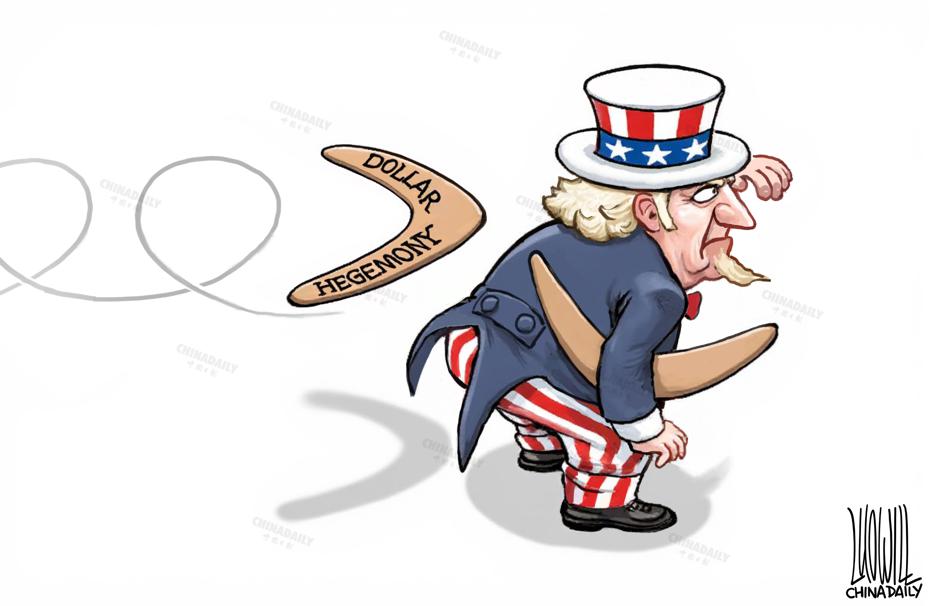US harvests gains of war economics, dollar hegemony

(Luo Jie/China Daily)
The World Economic Outlook report released by the International Monetary Fund in October predicts that the US economy is expected to grow by 2.8 percent in 2024, compared with its projected growth of 0.8 percent for the eurozone and 0.3 percent for Japan.
An important reason is that the United States has gained tremendously from the ongoing geopolitical tensions, to the cost of other parties.
The US has provided Ukraine with about $100 billion in various types of aid over the past two years, but most of the funds, about 90 percent, has been spent stoking the US defense industry, creating thousands of jobs in at least 38 states.
The US' war economics also functions hand-in-hand with its sanctions on Russia. After the still mysterious explosion of the Nord Stream natural gas pipelines in September 2022, the energy trade between Russia and Europe plummeted, forcing the European Union to turn to the US for natural gas, at a much higher price.
Washington has also taken advantage of its Inflation Reduction Act, CHIPS and Science Act and other domestic laws to attract high-tech companies from the EU and other developed economies to relocate to the US by providing them with game-changing subsidies.
Financial hegemony is another crucial tool for the US to boost its economy. Given the dominant position of the US dollar in the international monetary system, against the backdrop of intensified geopolitical turmoil and the Federal Reserve's previous aggressive interest rate hikes, more and more global investors have chosen to invest in the US' financial market to evade risks. US companies currently account for nearly 70 percent of the world's major stock indexes, while this proportion was 30 percent in the 1980s.
Relying on its dollar hegemony, the US has also created a "credit card" for itself with unlimited overdrafts, using huge debts to increase public spending. Over the past year, the US federal government debt surged from $33 trillion to $36 trillion. As the Federal Reserve begins to cut interest rates, the US government, which is already running at a high deficit, is expected to issue more treasury bonds, and the risks from the US debt will continue to rise.
Looking ahead to 2025, the policies of the new US government may expose the US economy to more risks associated with labor shortages, rising inflation, and worsening federal debt problems.
If the large-scale deportation plan of the incoming administration is implemented, the move may lead to up to 1 million job vacancies in the US in a short time. The widespread imposition of tariffs on trading partners will lead to rising prices, and the costs will ultimately be borne by US companies and consumers.
If the new US government implements tax cuts as the US president-elect pledged to do during his election campaign, in a bid to woo the voters, this will further reduce government revenue and expand the government's fiscal deficit, which will accelerate the deterioration of the US' debt problem.
Photos
Related Stories
- Chinese defense ministry slams U.S. annual defense policy bill
- China-U.S. military exchanges not political show: spokesperson
- Dialogue and trust stressed in Sino-US ties
- To ensure that China-U.S. sci-tech cooperation truly benefits both countries and world
- Development of China-US ties tempered by hope, pragmatism
Copyright © 2024 People's Daily Online. All Rights Reserved.









